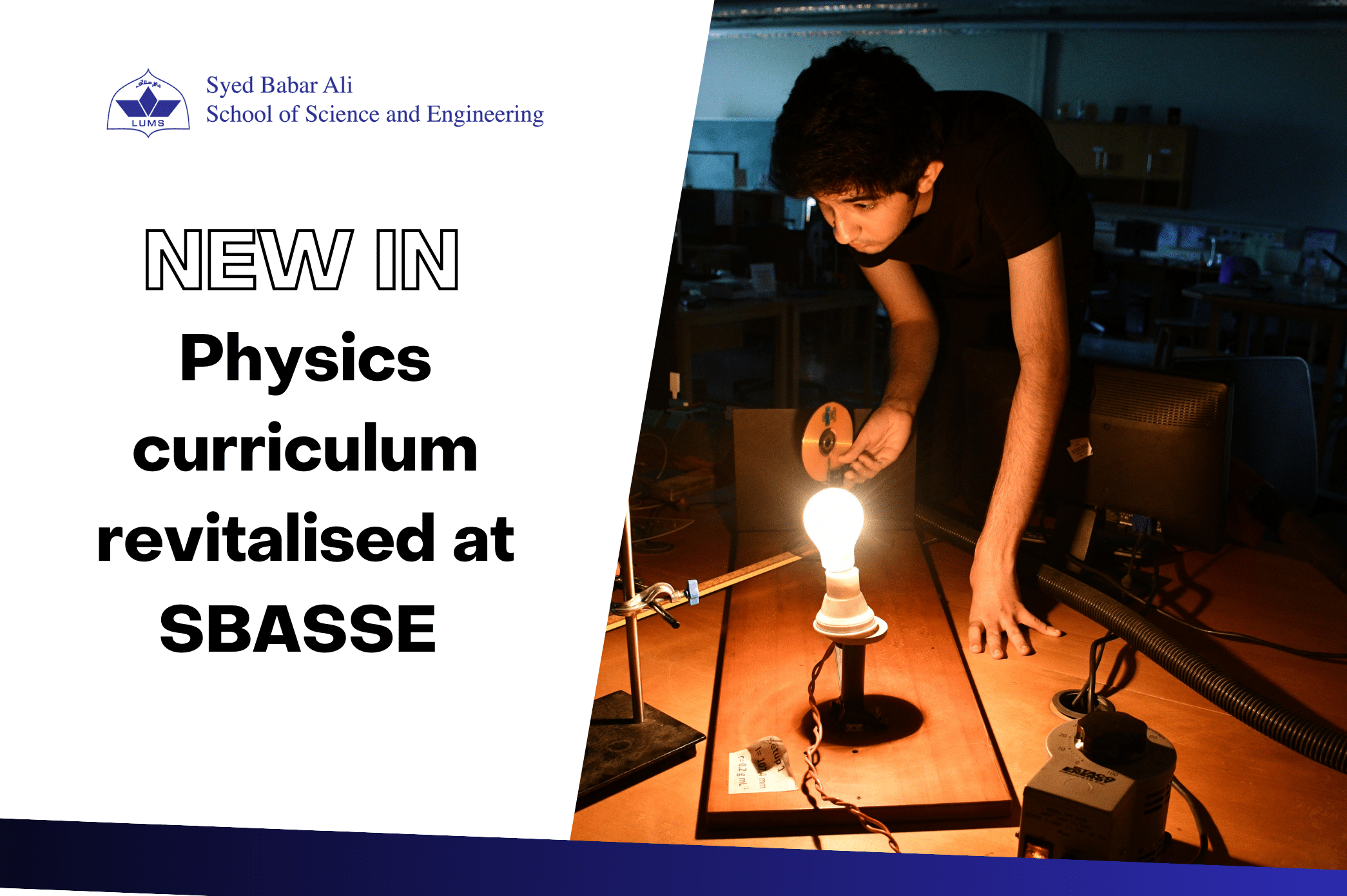
Physics curriculum is revitalized in SBASSE
The physics curriculum in the Syed Babar Ali School of Science and Engineering has been re-energized. This means the rigor in the fundamental offering has gone up, while students can now co-design their own learning pathway, to relish the cross-boundaries approach enshrined in the SSE motto. This has been achieved through the following means.
Condensed matter physics has been removed from the core and in its place, a new course with a SCI code Energy and Information has been introduced. This course will introduce students to energy, entropy and information, their interconnectedness, and will highlight the centrality of these concepts in our understanding of the universe and also provide the necessary tools to look at problems in the realm of climate, complex and emergent systems. The credit hours for the core course Statistical Mechanics have been rationalized to three, instead of four. The sequence Energy and Information followed by Statistical Mechanics is a coherent whole.
Two new core courses have also been introduced. One is a revamped Computational Physics that allows physics majors to delve deeper into data analytics, simulating natural phenomena and modeling physical processes, all using contemporary powerful computational tools. The course Seminars in Physics will hone skills in technical communication, scientific writing, and the art of presentation.
Finally, physics will allow students to take a wide variety of electives from across the SSE and present these courses to count towards physics major electives. The upshot is that students can become deeply thoughtful physicists and yet can pick up courses from a wide tapestry of offerings. For example, a student interested in astronomy and cosmology can, equipped with a solid physics core and the ensuing flexibility, can freely take courses from mathematics (general relativity, differential geometry, group theory) and computer science (advanced programming, data analytics, machine learning, artificial intelligence, big data) to emerge as a solid computational cosmologist. Examples of this kind will be plenty.
I congratulate our colleagues in physics and from across the SSE who took this plunge. Of course, the committees who approved this too. You may like to contact Dr. Syed Moeez Hassan for more details.
Muhammad Sabieh Anwar
Professor of Physics, Ahmed Dawood Chair and Dean
Syed Babar Ali School of Science and Engineering
http://www.physlab.org, http://www.physlogger.com, http://www.astrolab.ac, http://www.ksslsm.org, http://www.khwarizmi.org, http://www.markhor3d.com, http://sbasse.lums.edu.pk

